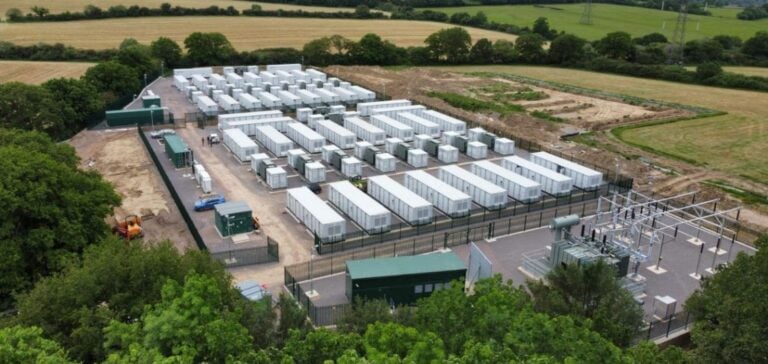The ongoing sale of Harmony Energy Income Trust’s (HEIT) 395.4 MW/790.8 MWh portfolio, one of the largest energy storage funds in the UK, is being closely observed by industry stakeholders. The process, managed by advisory firm JLL, has attracted non-binding offers for individual assets and the entire portfolio. HEIT plans to enter exclusivity with a preferred buyer in December and finalize agreements by January 2025.
An Indicator for the Market
The process is considered a key indicator of the maturity of the UK operational battery market. With few comparable transactions recorded to date, analysts believe this sale could set critical valuation benchmarks. London-listed companies such as Gresham House Energy Storage Fund and Gore Street Energy Storage Fund may also be affected.
Cost and Valuation: A Complex Equation
Peel Hunt analysts have raised concerns about the implied valuation of HEIT’s portfolio, estimated at approximately £837,000/MW. This valuation significantly exceeds the construction costs of a similar project, calculated at around £625,000/MW by Modo Energy. The critical question remains: would a buyer be willing to pay this substantial premium in the absence of exceptional financial performance to justify such a gap?
Battery revenues remain below target, and the cost of capital is decreasing as capital expenditures are forecasted to decline further. This places HEIT in a challenging negotiation position, with some experts suggesting that a discount might be more appropriate than a premium in this context.
Revenue Improvement: Encouraging Signs
Despite these challenges, energy storage revenues in the UK have shown signs of recovery in the second half of 2024 after a tough period due to market saturation. Annual revenues for two-hour systems reached between £57,000/MW and £68,000/MW from August to October, compared to lows of £46,000/MW earlier in the year.
This improvement is attributed to windy conditions and rising gas prices, leading to increased market volatility. In October, HEIT recorded average revenues of £70,000/MW/year, supported by record-high price spreads in the electricity market.
Prospects and Challenges
The closure of the UK’s last coal-fired power station in September 2024 led to an oversupply last winter, weighing on battery revenues. However, recent signs of increased volatility in the electricity market suggest a more favorable environment for storage assets. Gresham House plans to triple its annual revenues to £150 million by 2027 while expanding its capacity to 3 GWh.
Experts caution that revenues will remain volatile until structural improvements in the balancing mechanism are implemented by the national energy operator.





















